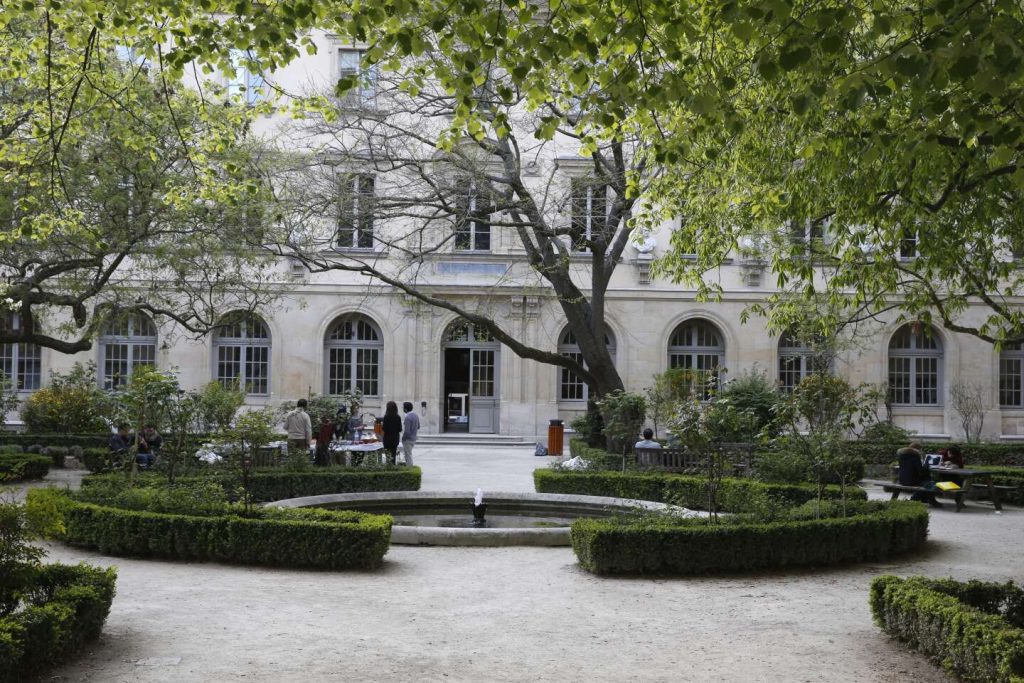The Ecole normale supérieure (ENS) closed its premises on Rue d’Ulm in Paris on Thursday, May 23, following the establishment of a camp in support of the Palestinian people by around thirty students in the main courtyard since Tuesday. The decision to close the building was made in order to preserve the safety of individuals and the premises, and to peacefully resolve the situation. Only students residing in the building are allowed entry, and alternative solutions for regular activities are being considered. The school, which has always shown solidarity with all victims and condemned war crimes, emphasizes the importance of a peaceful solution including a ceasefire in Gaza and the release of hostages.
The directorate of the school stated that about thirty students from various institutions, not exclusively from ENS, were occupying the courtyard. The school has 200 boarders on Rue d’Ulm and a total of 2,500 students across different sites. Despite the occupation, there has been no request for law enforcement to intervene. A member of the mobilization committee for Palestine criticized the closure as unjust, arguing that debates with students and researchers were being held during the week and the occupation posed no threat. Similar actions have taken place in France in support of Palestine, with instances of law enforcement intervention at institutions like Sciences Po.
In a parallel to the protests on American campuses, France has seen a wave of activism in recent weeks, centered mainly around Sciences Po campuses. While not widespread, these demonstrations have ignited political debates amid the European elections campaign, leading to police intervention at various locations including Sciences Po Paris and the Sorbonne. The situation echoes similar protests at the Ecole des hautes études en sciences sociales (EHESS) in Aubervilliers last week, where law enforcement put an end to an occupation by pro-Palestinian activists that had begun three days earlier. The escalation in tensions has put pressure on universities and further heightened the debate surrounding the conflict in Gaza.
Overall, the closure of ENS due to the Palestinian solidarity camp highlights the growing activism in France in support of Palestine, with similar actions taking place at other academic institutions. The response from the school and law enforcement reflects a broader political discourse around the Israeli-Palestinian conflict, particularly during the European elections campaign. The situation remains fluid, with ongoing debates, tensions, and activism continuing to shape the response from universities and authorities. As the situation unfolds, finding a balance between peaceful protest and preserving safety and order remains a key challenge for all parties involved.


